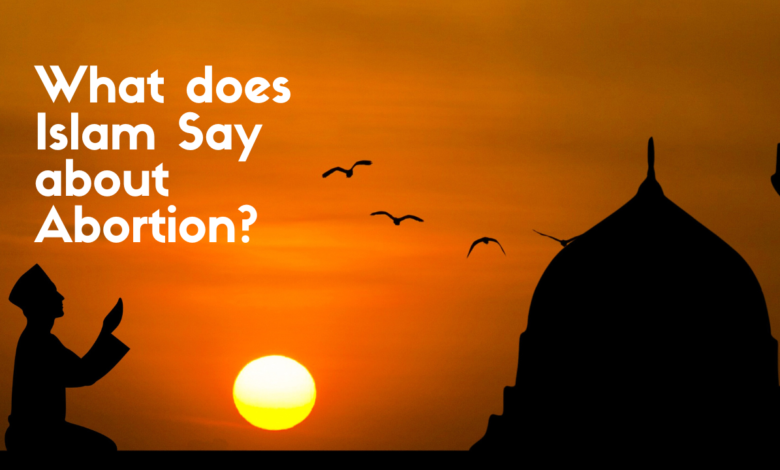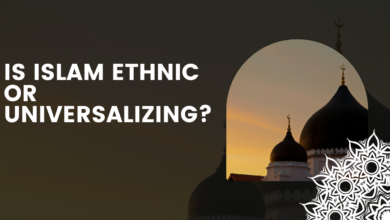
What does Islam Say about Abortion?
No, abortion is generally considered haram (forbidden) in Islam. However, there are exceptions in specific circumstances.

Introduction
Islam, one of the world’s major religions, provides a comprehensive ethical and moral framework for its followers. When it comes to the topic of abortion, Islamic teachings offer a nuanced perspective that considers the sanctity of life and the circumstances under which abortion might be permissible. To better understand what Islam says about abortion, it is important to delve into the religious texts, as well as the interpretations and opinions of scholars.
The Sanctity of Life
Central to Islamic teachings is the belief in the sanctity of human life. The Quran, which Muslims consider the literal word of God, acknowledges the significance of human life and its divine origins. In numerous verses, the Quran emphasizes the value and sanctity of life, even from the moment of conception. For example, in Surah Al-Mumtahanah (60:12), it is stated: “O Prophet, when believing women come to you pledging to you that they will not associate anything with Allah, and that they will not steal, and that they will not commit adultery, and that they will not kill their children, and that they will not bring slander, intentionally inventing falsehood.”
This verse highlights the prohibition of killing children, which includes the prohibition of abortion in most cases. However, as with many religious matters, there are exceptions and varying interpretations.
Also check.
- Which types of Relations are Haram in Islam?
- What is Islam and Iman?
- What is Indo Islamic Culture?
- What is in Heaven Islam?
- What is Laylat al-Qadr?
Permissible Circumstances
In Islam, abortion is generally considered haram (forbidden). However, there are exceptions when it may be permissible under Islamic law:
- Danger to the Mother’s Life: Islamic jurisprudence permits abortion if a pregnancy poses a direct and imminent threat to the life of the mother. In such cases, the preservation of the mother’s life takes precedence over the sanctity of the unborn child’s life.
- Fetal Abnormalities: Some Islamic scholars allow abortion if the fetus is diagnosed with severe abnormalities that would result in immense suffering or a very short life. This is based on the principle of minimizing harm and suffering.
- Rape or Incest: In cases of rape or incest, some scholars argue that abortion may be permissible, as the circumstances surrounding the conception are sinful and traumatic.
- Early Stages of Pregnancy: There is a difference of opinion among scholars regarding the timing of when abortion becomes impermissible. While some hold that it is forbidden after 120 days (four months), others argue that it should be avoided after 40 or 42 days (the period when the soul is believed to be infused into the fetus).
These exceptions underscore the principle of balancing the preservation of life with the alleviation of suffering and the respect for the well-being of the mother. They also demonstrate the flexibility within Islamic jurisprudence to consider the specific circumstances and context of each situation.
The Role of Personal Choice
Islam recognizes that individuals have free will and must make moral and ethical decisions based on their understanding of the faith. Therefore, personal choices regarding abortion should be made with deep consideration of Islamic teachings, seeking guidance from religious scholars, and consulting with medical professionals.
Conclusion
In Islam, the sanctity of life is a fundamental principle, and abortion is generally considered forbidden. However, Islamic jurisprudence does allow for exceptions in cases where the life or health of the mother is at risk, severe fetal abnormalities are present, or conception occurs as a result of rape or incest. These exceptions reflect a careful consideration of individual circumstances and the overall goal of minimizing harm and suffering. Ultimately, the decision to undergo an abortion in accordance with Islamic principles should be a thoughtful and informed one, made with guidance from religious authorities and medical professionals, and in line with one’s personal conscience.

FAQs
Is abortion allowed in Islam?
No, abortion is generally considered haram (forbidden) in Islam. However, there are exceptions in specific circumstances.
Under what circumstances is abortion permissible in Islam?
Abortion may be considered permissible in cases where there is a direct and imminent threat to the life of the mother, when the fetus has severe abnormalities, or when pregnancy results from rape or incest.
What is the significance of the sanctity of life in Islam?
The sanctity of life is a core principle in Islam, emphasizing the value and divine origin of human life, even from the moment of conception.




